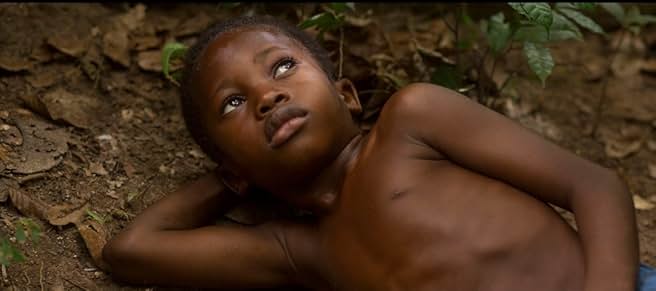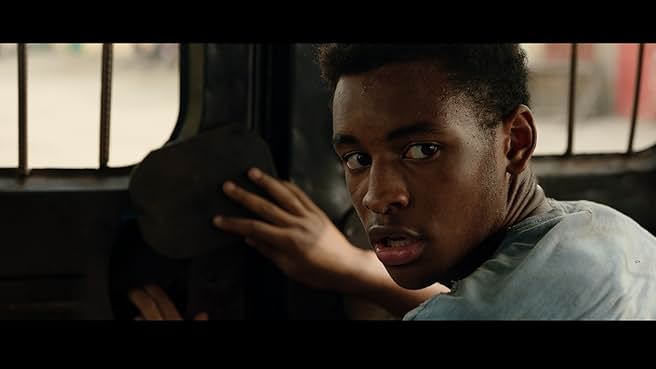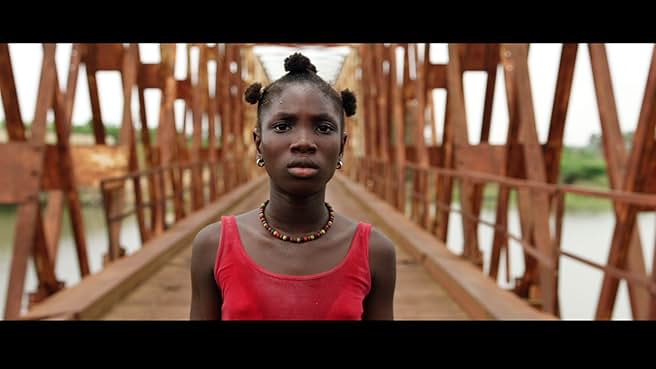Adu || Movie Review
The film Adu is a Spanish drama directed by Salvador Calvo. The film is far more than just a film, it takes us on journey into the heart of the African refugee crisis which left me with a deeply emotional experience.
Adu tries to paint the picture of a six-year old character going through challenging experiences. The kid after going through a traumatic event involving elephant poachers in Cameroon, finds himself displaced and desperate to reach Spain to reunite with his father. The boy's performance in the film was really phenomenal. He had this innocence in his eyes, filled with a mixture of fear, and also a bit of hope. This convey the immense suffering and vulnerability that child refugees go through but not being able to say a single word. It was almost difficult to tell between between fiction and documentary due to his performance.
The film basically narrates the brutal realities that immigrants in most cases face. It plainly shows scenes of violence and exploitation which are encountered by people that make such journeys. A major part of the film that was really heartbreaking was when Adu made an initial attempt to flee with his older sister, Alika, which helps shade some light on how desperate and vulnerable children can be when caught in this crisis. The visuals of the movie were impressive. It did a great deal in capturing the breathtaking but often cruel African landscapes, feeding us with the sight of despair of refugees in the camps.


One notable aspect of the film was in the remarkable bond forged between Adu and Massar (Adam Nourou),who is a little older than Adi and later on turns to be Adu's protector and surrogate family. We see both the youthful exuberance aspect of Nourou and also the weight of responsibilty he pulls on himself. Their interactions and how they share the struggles for survival gives quite a sympathetic narrative.
The extent to which Massar sacrifices for the sake of Adu, including enduring personal abuse, hammers on acts of selflessness that emerge in tough circumstances. The film branches into two other interconnected storylines. One follows a Spanish border guard, Mateo, played by Alvaro Cervantes, who wrestles with his conscience after a refugee dies during a border crossing, gives us themes of complicity and moral dilemma within the system. The other focuses on Gonzalo an animal rights activist in Africa struggling with the problem of poaching and his own poor relationship with his troubled daughter (Anna Castillo).

These subplots hels to broaden the film's scope, demonstrating the web of socio-political issues that gets in the way with the refugee crisis, from environmental exploitation to systemic corruption and personal responsibility. The way these seemingly narratives later converge towards the end. This is one film that was really emotionally demanding and contains graphic content that can be quite deeply discomforting. Like, the film does not at any time sugarcoat the reality, what it does instead is compel viewers to confront uncomfortable truths and foster a much-needed sense of empathy.
It’s a call to action, urging us to recognize the universal human desire for safety and dignity, and to question the policies and attitudes that promote such suffering. Adu is a powerful and necessary cinematic experience that leaves a lasting impact. I give it a rating of 8.5/10.
Congratulations @elvishunchoo! You have completed the following achievement on the Hive blockchain And have been rewarded with New badge(s)
Your next target is to reach 100 comments.
You can view your badges on your board and compare yourself to others in the Ranking
If you no longer want to receive notifications, reply to this comment with the word
STOPMovies like this tell how tough is it to come from this black continent
This movie is one I’d like to see but I wouldn’t want to end up in tears. It’s a tough choice.🥲
Thanks for sharing.